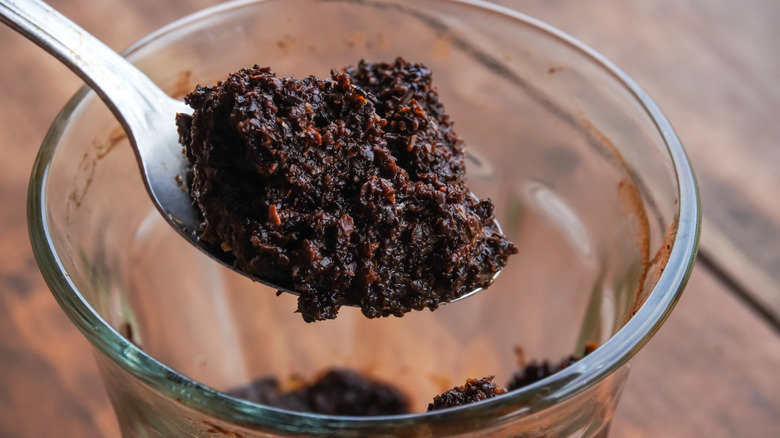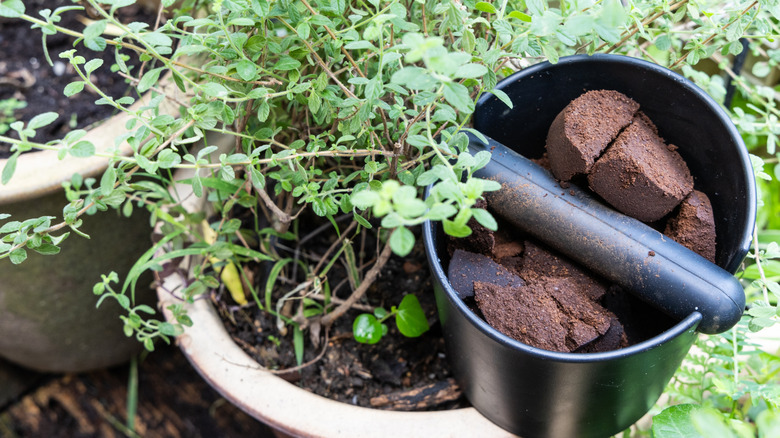Coffee Grounds Are Your Secret Weapon For A Better Lawn
While the U.S. isn't the country that drinks the most coffee in the world, Americans do love a cup of joe. Many folks can barely get through the day without completing their morning ritual of brewing a rich, caffeinated beverage to fully awaken. Yet, that means lots of coffee grounds destined for the ever-increasing pile of garbage in landfills. While there are plenty of uses for leftover coffee, there aren't as many options for the grounds. However, one way they can be repurposed can help keep your lawn (and other plants) vibrant.
Coffee grounds are incredibly rich in nitrogen, which encourages some plants like grass to grow. Tossing them into your lawn can help maintain the bright green hue that many a lawn owner strives to achieve. In contrast to commercial fertilizers that often release nitrogen into the soil relatively quickly, coffee grounds slowly feed nitrogen to the lawn, which can be easier on the greenery. Earthworms will also come by to eat the coffee grounds because it helps them digest; their action loosens the soil and promotes microbial growth that further keeps your lawn happy.
Leftover coffee grounds can also be used to keep a compost bin healthy if you have more than you need for your lawn. They help organic material break down faster, but you don't want the bin to consist of mostly coffee grounds. A healthy compost bin should have a variety of materials like leaves and leftover food scraps as well. If you find that between your lawn and your compost bin you still have used coffee grounds that need a better home than the garbage can, there are a few other ways to repurpose them for everyday use, including in your vegetable garden.
More uses for leftover coffee grounds
Folks who like to grow fresh produce at home will be glad to hear that leftover coffee grounds can also be used to help their veggies grow. While fresh grounds are too acidic for some plants, like asparagus, used grounds typically have a more balanced pH that can benefit several varieties of produce. They can even be used as part of a mulch mixture to help the soil retain more moisture throughout the day while the plants are soaking up the sun.
If you're more interested in kitchen-focused tasks, another great way to repurpose leftover coffee grounds is to tenderize meat with them. Acid and salt generally do most of the tenderizing in a marinade, but coffee grounds also contain acids that can help to break down meat fibers when applied as a rub. Making a steak rub with notes of your morning cup of joe not only tenderizes the meat, but also imparts earthy and smoky notes that accent the protein's rich umami flavor.
If you have some pots and pans that got obliterated with stuck-on grime during your last cooking session, coffee grounds can come to the rescue. Because they have a coarse texture, they can be used to help break apart stubborn food particles clinging to the pans even after they have contributed to your morning ritual (you may not want to try this with nonstick cookware, lest you damage the coating). From keeping your lawn green to helping steaks taste better, tossing leftover coffee grounds in the trash feels almost like throwing money down the drain.

